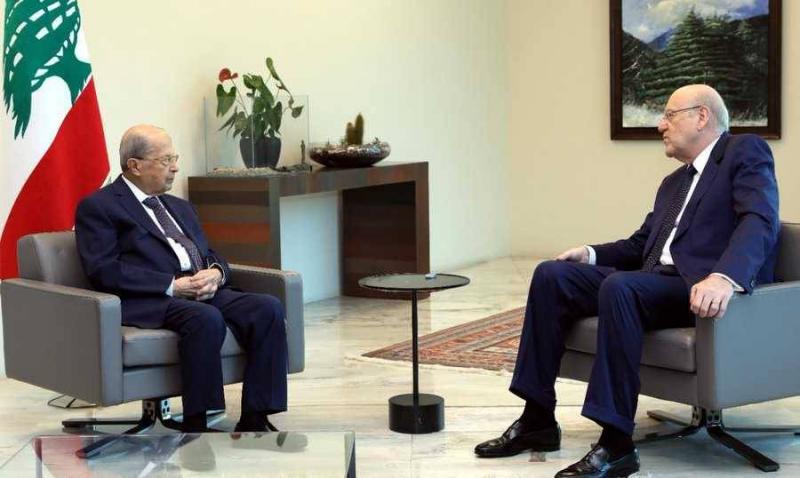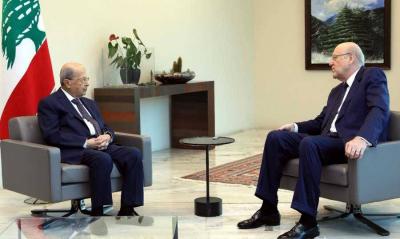The positive impression circulating is that the formation of the government is still possible, and time has not yet completely expired or become embarrassing. Until President Nabih Berri calls for a session to elect the new president of the republic starting from midnight on August 31, opportunities remain for reaching an agreement on the new government. It is not necessary for President of the Parliament Nabih Berri to call for the session on the first day of the constitutional period, nor in its first two weeks. In the last electoral round, the constitutional period for electing a president began on March 25, 2014, and ended on May 25. However, the first election session - which did not take place in all cases - was on April 23, almost a month later. Similarly, before the 1998 election, the council convened on the first electoral date on October 15, three weeks after the beginning of the constitutional period on September 24. Before the Taif Agreement, presidents were not always elected in the first week or the early weeks of the constitutional period; rather, the process was often delayed to ensure wider consensus around them or even competition.
Thus, Berri may not rush to set a date for the election session - which is completely different from issuing a call and serves as a complement to it - in the first two weeks necessarily. It is always likely that the second month of the election term is the actual playing field for elections. Sometimes, deputies are called to sessions under the assumption that the quorum would not be met. In recent years, the presidential vacancy has become a tradition that is easier to digest after being repeated three times. It could even be a candidate for its fourth occurrence. President Michel Sleiman was elected in the 20th session, and President Michel Aoun in the 45th session. This indicates that, first, the time for the beginning of the constitutional period must come; secondly, the time for the first session must come; and thirdly, especially, the time for electing the new president must arrive, where these three dates have their significance and meaning. However, it is still early for any of these three dates, at least. This also implies that there is still time available to form the new government. An additional two months or slightly more, at best, to agree upon it if that is truly the goal; the approval of a ministerial statement will be insignificant and futile, and its subsequent appearance before the Parliament for a vote of confidence. After that - if all goes well as in the Book of Genesis - the head of the council will issue a call for the election session. At this point, the system of deadlines stops. The disagreement over forming the government is a separate matter.
In the recent exchanges between the President and the designated Prime Minister, each party is waiting for responses from the other regarding what has been proposed, without it being clear who is required to respond first. Prime Minister Najib Mikati said he submitted a cabinet formation and is waiting for Aoun's remarks on it to discuss. Aoun replied that he provided Mikati with observations and is waiting for his comments. Thus, the exchanges continued between the two presidents, without breaking the cycle of who answers first. However, this does not necessarily indicate that both do not want a new government or are fabricating a constitutional crisis without cost. The reality is that the current effective equation for the stages of government formation, whether it succeeds or fails later, seems to be as follows:
1. As long as he holds the indispensable final signature, and has recently reaffirmed his participation in forming the government, Aoun proposes its specifications that differ from those of Mikati. This is the last significant and important signature for him before the end of his term, considering that the chances of electing a successor are equal to the chances of a presidential vacancy. Although he experienced full cooperation with Mikati as Prime Minister between September 10, 2021, and May 22, 2022, without any conflict arising during the tenure of the resigned government, and Mikati appeared to him as a seasoned and understanding figure unlike his predecessor, Prime Minister Saad Hariri, their engagement in the current new government has returned him to an opposing image, or more accurately, a contentious one, similar to what he experienced in his relationship with Mikati during Mikati's second presidency between 2011 and 2014, while Aoun was still the head of the Change and Reform bloc. At that time, their disagreements were evident.
2. Mikati behaves based on the belief that the factor of time is in his favor. He wins whatever way the crisis unfolds. As he is both the caretaker Prime Minister and the designated Prime Minister, both of which are stable and cannot be taken away from him as long as they are concurrent, he has the ability to impose conditions that allow him to claim that he wants his government. Thus, he confines the President's authority to consulting with him in the formation, rather than as a partner. What Hariri did not manage to highlight before Aoun between 2019 and 2021, by his designation and repeated abstentions, was to form his own government rather than a coexistence government with the President, which shows Mikati's insistence on his proposed format, perhaps in this exceptional and ideal timing he finds at the threshold of the end of his term, hoping to extract from the President what his predecessor could not do with him.
3. The correct equation between the two presidents at the moment lies in the fact that what Mikati proposes in the new government formation is not approved by Aoun, and what Aoun accepts is not something Mikati can present. The irony is that both know in advance what provokes the other and leads to rejection. They are thus at opposite ends regarding the specifications, and further communication breakdown has heightened the divergence in their viewpoints and distanced them even more. There is no mediator between them to facilitate understanding and benefit from the factor of time. The Speaker of Parliament is not directly concerned with the entitlement; he prefers to watch the final chapters in preparation for the new phase in which he is relied upon to elect the new president. Likewise, Hezbollah maintains a similar role without stepping towards either president. It has publicly expressed negative remarks about the designated Prime Minister and doubts about him but implicitly, its calculations regarding the presidential entitlement do not at all resemble what the two presidents want or think. Thus, the government becomes of little significance or importance to it.




